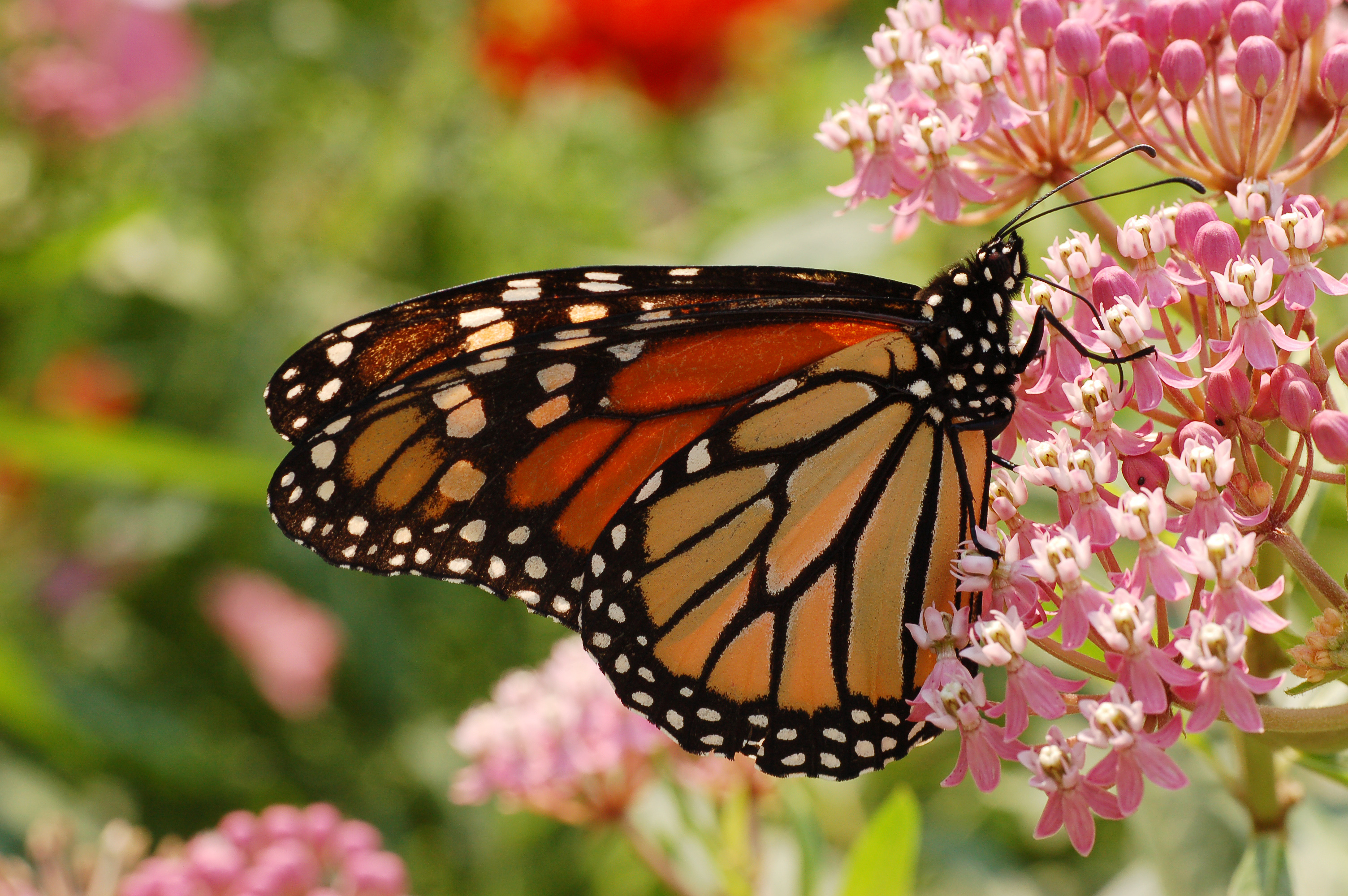We can help reverse the damage that devious developers have done. "Patience and time," as General Kutuzov said in Leo Tolstoy's novel, War and Peace.
Central Florida community works to bring back monarch butterflies.
May 13, 2018, at 3:01 a.m.
Central Florida Community Works to Bring Back Butterflies
By RYAN GILLESPIE, Orlando Sentinel
ORLANDO, Fla. (AP) — Efforts are underway in Central Florida to restore the habitats of the monarch butterfly, crucial to helping plants grow, including many foods people eat.
The iconic orange and black insect is one of nature's key pollinators. Environmentalists say its decline, which they blame in part on climate change, threatens the ecological health of the region, and other crucial insects may be suffering as well.
"I think in this case, the monarch serves as the old adage of a canary in a coal mine," said Full Sail University President Garry Jones, who helped organize the initiative along with The Nature Conservancy. "If they're declining, it's time for all of us to be more awake."
To help, Central Florida governments, schools and businesses are encouraging residents to plant milkweed — the pink, orange and yellow flowering shrub the insect thrives on — to boost habitats for the monarch and other pollinators.
Environmentalists say insects such as the monarch spread pollen throughout the region, helping create lush natural land and spread plant life. They also are important to the food supply because they pollinate plants that grow potatoes, tomatoes and other produce.
"Pollinators — especially bees, flies and butterflies — those are key to maintaining a healthy, thriving landscape of flowering plants. We as people depend on pollinators to basically provide us with a lot of the food we eat," said Zachary Prusak of The Nature Conservancy. "If we know the monarch is declining, people can actually take action (to save it)."
The monarch's worldwide population has diminished by about 80 percent since 1996, according to The Nature Conservancy.
Signs of the campaign are hard to miss around town.
At Semoran Boulevard at University Drive in east Orange County, a massive mural dubbed "Milkweed Galaxy" is painted on a building at Full Sail University, facing the highway. It depicts three monarchs among leaves and milkweed, and a butterfly garden is planted in front of it.
Jones said the idea of helping the butterfly stemmed from a green initiative at the school, and he later brought it to community leaders for support.
Motorists downtown may have seen another mural painted on a building at Orange Avenue and Anderson Street near the Dr. Phillips Center for the Performing Arts.
"We think the monarch is a great iconic example of all of those issues we're trying to address," said Temperince Morgan, executive director of The Nature Conservancy. "The hope is that when they become aware, they will take actions in their personal lives."
In Audubon Park, residents are putting milkweed in planter boxes at apartments and businesses.
Monarchs seek refuge in the milkweed and lay their eggs on it. Upon hatching, the caterpillars also munch on the plant before their time to cocoon and become a butterfly.
Last week, Orlando Mayor Buddy Dyer and Winter Park Mayor Steve Leary declared April 19 "Save our Butterflies Day" as the two cities helped launch the campaign. University of Central Florida and Rollins and Valencia colleges also have gotten on board.
"I don't think people understand how important they are to our existence," Leary said.
Milkweed is already in place in planters along Park Avenue in Winter Park, and the city has put up signs and installed orange lights in two fountains in Central Park to bring attention to the initiative.
Schools such as Dommerich Elementary in Maitland and Monarch Learning Academy in College Park also are planting butterfly gardens on their campuses as part of the campaign. Businesses such as Foxtail Coffee, East End Market and Red Light Red Light will be distributing packages of milkweed seeds to customers as well.
Morgan said monarchs will show up quickly after the milkweed is planted, sometimes within hours or days.
"We think the monarch is a great iconic example of all of those issues we're trying to address," Morgan said. "It's emblematic of what our pollinators as a whole are faced with."
___
Information from: Orlando Sentinel, http://www.orlandosentinel.com/
Copyright 2018 The Associated Press.
In secret, behind locked gates, our Nation's Oldest City dumped a landfill in a lake (Old City Reservoir), while emitting sewage in our rivers and salt marsh. Organized citizens exposed and defeated pollution, racism and cronyism. We elected a new Mayor. We're transforming our City -- advanced citizenship. Ask questions. Make disclosures. Demand answers. Be involved. Expect democracy. Report and expose corruption. Smile! Help enact a St. Augustine National Park and Seashore. We shall overcome!
Subscribe to:
Post Comments (Atom)

No comments:
Post a Comment